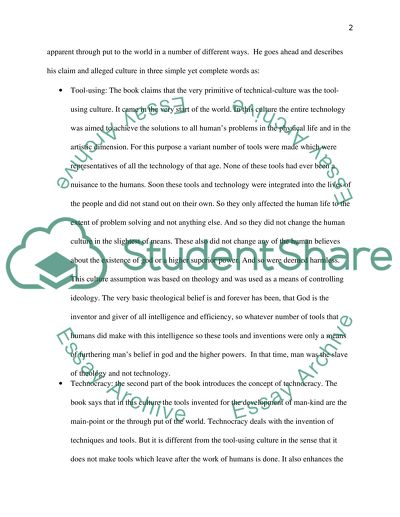Cite this document
(“Neil Postman's theory on technology is outdated Thesis”, n.d.)
Retrieved from https://studentshare.org/finance-accounting/1418225-neil-postman-s-theory-on-technology-is-outdated
Retrieved from https://studentshare.org/finance-accounting/1418225-neil-postman-s-theory-on-technology-is-outdated
(Neil Postman'S Theory on Technology Is Outdated Thesis)
https://studentshare.org/finance-accounting/1418225-neil-postman-s-theory-on-technology-is-outdated.
https://studentshare.org/finance-accounting/1418225-neil-postman-s-theory-on-technology-is-outdated.
“Neil Postman'S Theory on Technology Is Outdated Thesis”, n.d. https://studentshare.org/finance-accounting/1418225-neil-postman-s-theory-on-technology-is-outdated.


